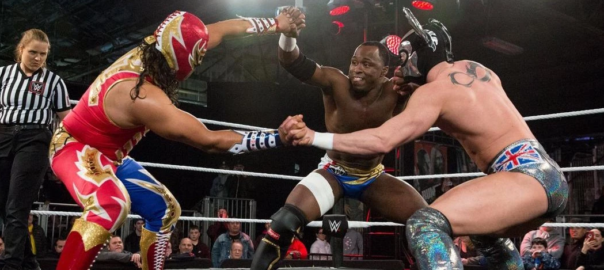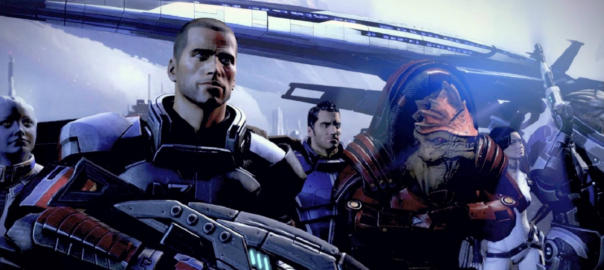Is there a difference between entertainment and art? That question is all around us these days. Let’s look at the current movie scene, where everything is pretty much getting smashed by superhero films. Some people are adamant that they are expensive junk food like a shrimp Big Mac with a Goldschlager Coke. Others will say that there is artistic potential there, though perhaps unrealized. Similarly, the debate rages on whether or not video games are or can ever be capital-A Art.
Looked at realistically, ‘entertainment’ and ‘art’ are not separate, they both exist on a sort of line. As you get more and more refined, you get more into being called ‘art’ or even ‘Art’. The less refinement you show, the less ‘arty’ you look, even if what you produce can be as engaging and entertaining as something considered more ‘artistic’. Superhero films are art in the sense that they definitely exist in that space, but the question remains if they or if any single film is Art. Do they show the traits that we associate with Art in cinema, or do they perhaps show some other great refinement?
Pro wrestling and video games are actually good companions in the conversation about art. Both of them are often viewed as junk to consume, crude even if they are found somehow addicting. You understand where the idea comes from when you think about early games like Space Invaders, Galaga, Pac-Man, Super Mario, games that seem to be about nothing more than blasting or moving, nothing too complicated aside from the intensity. Yes, it’s impressive if you can get to a high point in Pac-Man, but it’s the same sort of thing as balancing the most plates on your heads: congrats, you’ve done it, but why would you do such a thing?
The fact that the most visible contemporary games for ‘gamers’ or ‘gaming aficionados’ are titles like World of Warcraft, Gears of War, Counter-Strike, Call of Duty (dating myself a bit, I know) doesn’t erase that perception. They’re higher-level, higher-quality Space Invaders: at the core it’s just about blasting the opponents. E-sports like Starcraft or actual sports games like FIFA & Madden don’t get around the ‘not art’ thing because we don’t view actual sports like football as art. If artistry in video games is based on its cinematic scope (which is usually how people frame it, though I disagree) then it’s tough to say that ‘gaming’ is interested in art.
In the same way, what do people remember most about pro wrestling, especially in the United States? Well, there was Hulk Hogan, he kinda just lumbered around and hit people a lot. He faced a lot of guys that were just like that. Oh, then there was the Attitude Era, where old dudes kinda hit each other a bunch or where a regular age dude hit his boss a bunch. Hardcore stuff, they hit each other with weapons. Cage match, they hit the cage with each other.
I was young during the Attitude Era but nobody has ever mentioned the extreme ring craftiness of any competitor during that time. I mean, Triple H was the ‘cerebral assassin’, which meant that he started hitting people with sledgehammers. If you want to watch people hitting each other, wrestling was your deal. As far as being ‘Art’ you can see how it is tough to justify to someone who doesn’t understand that this qualifies as ‘Art’.
And perhaps it doesn’t. A lot of pro wrestling probably doesn’t deserve to be called capital-A Art. But that’s perfectly okay. A lot of music doesn’t deserve to be called Art, and soap operas are an entire genre of not-Art that aspires to be big screen drama that is Art. Like I said, it’s all a spectrum.
But the beauty of artistry, of Art, is that it transcends people’s preconceptions. A fantastic country song or an incredible rap verse can turn a die-hard hater into a devotee. I know people who cannot stand big blockbuster action fare but love Die Hard, the epitome of the genre. Whether or not you think every little bit is Art isn’t the point.
I love sludge metal and I’ll listen to lots of bog-standard sludge bands just cause I dig the sound, but equivalent bands of black metal or speed metal or whathaveyou don’t catch my interest; it’s only the incredible ones that get over that hump (I’m not gonna namedrop here so no one can laugh at my taste). For its own sake as well, for the fans, something that approaches Art is going to be cherished by them, while something that’s entertaining but that’s all will be appreciated and that’s it.
Artistry in pro wrestling is a hard thing to nail down. One clear element is simple performance and anyone can see that. I think the level of sheer performance in pro wrestling has never been better or crisper. Wrestlers of all sizes take to the air with incredible ease now, they do complicated lifts, they chain together counters with total fluidity.
Thirty years ago, Manami Toyota shocked the world with an electric chair suplex, the Ocean Cyclone. Eight years ago, Kenny Omega pushed it forward into a German suplex with Croyt’s Wrath, and now he’s evolved it into a buster with the One-Winged Angel. Sami Zayn and Shinsuke Nakamura can execute counters for days, Zack Sabre Jr can bend or twist or spin out of anything, and it is all phenomenally crisp.
There is a rise in stiffness for its own sake which I think is a bad thing. Seth Rollins has recently been slammed for being reckless with John Cena, but I think that more likely is that Rollins is used to guys who will work a harder style (and therefore protect themselves better) whereas Cena likely expects to be more protected by his opponent. That’s speculation, but what isn’t speculation is that a harder style is naturally going to take more of a toll on people. That said, harder hits make the show feel more live and engaging, so it’s difficult to say that an increase in stiffness is a bad thing all around. It’s a shift in the style of performance.
The common veteran complaint about the newer generation, aside from the stiff Japanese-inspired working, is the lack of ‘storytelling’ and ‘pacing’. This claim needs a lot a lot of unpacking and I’m not going to do it all now. The reason I bring it up is that, in trying to investigate the claim, I found myself a lot of time harkening back to styles and approaches that I wanted to see but I couldn’t exactly pinpoint in an old match.
My opinion is that it comes down to not every match being top-level Art. Even in a good period, only very few are going to hit the top mark, just like very few paintings or songs ever do. That and me not having an encyclopedic memory; I didn’t want to just go through all my old favorite matches, though thinking about it now that’s probably exactly what I should have done.
Anyway. Let me get back on track.
When I started thinking about this, I realized that I really couldn’t make this point in a crotchety ‘this is the way it used to be done!’ way. Instead what I’m going to do is lay out what I see right now and then talk about what I think would be the most interesting way to develop. Most of these elements I think have been worked to perfection in the past, but I’m gonna stick with the hypothetical now and I’ll let you readers decide who’s done this stuff best.
The piece of the wrestling artistry pie I want to talk about is ring strategy. Wargame purists will let you know that there’s a lot of mixup between ‘strategy’ and ‘tactics’, but I really do mean strategy: the idea behind how a wrestler fights, not just which moves they choose and when. When I hear people complaining about matches ‘going too fast’ or being ‘just about moves’, I think about strategy first.
Usually, veteran critics on shoot interviews talk about ‘going too fast’ from an out-of-character standpoint, saying that you as a person need to slow down whether or not you feel that your character would slow down at that point. My feeling is that by understanding what your character would actually do in that position, more about the performance will fall into place; that might mean slowing things down a bit, but it might mean speeding up more.
When I see a wrestler doing what I consider to be ‘too many moves’, the problem is always that they forget their character is there to win the match. They appear locked in on the fact that they are entertainers trying to do wow-ing moves, rather than settling into their role of a competitive wrestler who wants (in most cases) to get the victory and move up in the rankings.
This is where the strategy comes in. If a wrestler comes in without a specific gameplan as far as how they’re going to try and defeat their opponent, it’s easy to get lost in the moment, whether that’s the excitement of dreaming up the spot or whether it’s in the ring itself. That’s not just wrestling performance, that’s all performance, whether it’s theatrical, musical, sports competition, whatever.
But more than that, a wrestler who seems more in tune with their character and their surroundings feels more alive, more real. When a wrestler comes out simply to entertain the crowd, we may be entertained. Capital-A Art has always had as one of its major planks a sort of incidental quality, to go all five-dollar words for a moment. The greatest paintings or compositions have this aura about them like they’re not about us the viewer, they are about something else that only the artist is really aware of. It is for revolution, or it is for love, or it is in order to explore doubt, and so on.
These painters or composers are seeking primarily to engage a powerful idea and, through doing that, something beautiful is created. It’s the same way in wrestling. The matches that are most captivating are the ones where it doesn’t feel like the wrestlers are just playing to the crowd, it’s where they are locked in competition and their greatness comes out of that.
Right now, ring strategy is viewed in a pretty limited way. I’ve seen people go ga-ga at the same techniques that have been used for decades. Nothing new about them. It’s just ‘whoa look at the Revival using legwork, they’re just like Arn & Tully!’ That should be the minimum we expect from a wrestler: to have some gameplan that gets them to win. The fact that we don’t is a major reason why, in my mind, wrestling gets short-changed by people who are looking for ‘high Art’.
Part of the reason why is, I think, the difficulty of putting a finger on exactly what a higher-level strategy is. Working the leg is a very clear means to an end, but beyond something like that, what exactly is a ‘good strategic move’? That’s the question I want to tackle here.
To begin with, I’m going to dig into the usual strategic or tactical thinking that pretty much any wrestling fan can pick out. To do that I am going to do some referring to real situations, but for random examples I’ll make use of three nongendered stock characters: Kid Showbusiness who’s the flier, anybody from Lita to Kota Ibushi; Big Mask with the power game, think Beth Phoenix, John Cena, Vader; and Twist Thompson the grappler, your Kurt Angle, Becky Lynch, or Zack Sabre Jr.
You got all that? Great.
Strategy #1 is a sort of non-strategy: random attack. This is just… y’know, hitting your opponent. The guy who really exemplifies this approach is Hirooki Goto. In whatever match he’s in, he just throws whatever he’s got at his opponent, usually trying for as big an impact as he can get away with at the time. This isn’t totally stupid as it’s based on wearing down your opponent on a holistic level. You’ll see top level guys going with this approach a lot against weaker opponents. That’s a time when it makes sense: it establishes that the top guy doesn’t need to do a lot of thinking to beat the lower guy.
This is where your ‘vanilla midget spotfest’ peeps reside on most days. Like I said, though, this is Goto’s style, and Tomorhiro Ishii does it a lot as well. These guys are the ones who will most likely get sneered at as ‘video game wrestlers’. One of the least realistic parts about video games is the life bar system, how an enemy can be killed just as easy by a kick to the leg as by one to the head, depending on how much you’ve taken their life down, and how they’re fully powerful until they’re dead. Random attack styles make matches seem very video-game-y in the worst, most button-mashing sense.
The next stage up is limbwork, and we’ll include working on the back or the neck or whatever as limbs here. You’re doing at least one of two things by working a body part: you’re setting up a bigger move for yourself or you’re slowing the opponent down. As far as conveying a strategy to the audience, limbwork is great because it provides a clear focus. If you work on the leg, we now want to see how that injured leg is going to play into the match. I like limbwork but I feel there’s a whole lot more that can be done strategy-wise in wrestling. My issue with it is that, rather than being thought of as a base for strategy, it’s thought of as the endpoint.
The final usual stage of strategy is avoidance. Most often you’ll see finisher avoidance, pretty common in WWE as closing stretches of matches often include at least one finisher escape. This is meant to show that the escapee is prepared for their opponent, or at least that their style can beat their opponent’s. You can also have some style avoidance, which we saw a little bit of in Cedric Alexander vs Kota Ibushi from the WWE Cruiserweight Classic where Alexander made sure to keep away from Ibushi’s kicks.
One thing that hurts most avoidance in wrestling (especially in current products) is that it’s not used to its fullest, it’s only used as color to set up the bigger move. In Alexander/Ibushi, yes Alexander knew to get away from the kicks but Ibushi did eventually land a kick which begun his road to victory. A more developed strategic sense might have had Alexander totally shut Ibushi’s kicks down and force Ibushi to come up with something different.
That’s where I want to go with these next ideas. Limbwork, avoidance, and attack are all pieces that can be used to develop even more interesting strategies.
One of the areas that does get touched upon is targeting attitude or emotion. Shinsuke Nakamura is a master at this, doing a lot to frustrate his opponents so they’re somewhat off-kilter. What I’d like to see more of is a consistent focus on mental games as a way to win.
Let’s say Big Mask, our power wrestler, is known for their powerful forearm shots. How about if Twist Thompson withstands a few and doesn’t seem fazed? How about if Twist then delivers a big one, and now Big Mask has to think ‘what do I gotta do?’ and that opens up Twist’s opportunity? Then, later down the stretch, where Mask would usually use their forearm, they hesitate and Twist gets to take advantage again. A development like that would be brilliant to see. It capitalizes on Twist getting inside Big Mask’s head and that actually ends up changing the whole match.
Or take an annoying opponent, Kid Showbusiness being the gnat around Big Mask’s breakfast. The Kid gets Big Mask mad to the point that they don’t even try small moves, they’re just throwing their big finish in a blind rage while The Kid dodges it all, or getting Big Mask so aggravated that they forget an injured arm and overstrain it. A wrestler who could really manipulate their opponents in a way beyond just minorly annoying them would be showing a very complex mental game, the sign of a top-level competitor.
It’s all about wrestling styles at the end of the day, though, isn’t it? And sitting close to the top of strategy in wrestling for me is challenging styles. Very often we get the ‘clash of styles’ hype in a match (EVOLVE has built itself on this), especially when it’s between a small flier and a big hitter. I don’t see anyone do much more than acknowledge this, though, and say that ‘the smaller guy has to use his speed while the bigger guy uses his power’. Usually, though, neither person works any different than they would against other people.
Take legwork for example: according to commentary, working the leg is both good against fliers and power, making it seem not a specific strategy. Somewhat who works the leg will usually do it against whoever they face, which is a good focus but it doesn’t really show how they adapt to new and different situations. Here are a couple off the cuff ways to deal with specific styles in a match:
- vs Kid Showbusiness, aerial: Injuring the legs obviously takes down their speed and jumping power, as does injuring the lower back. Keep the guy away from the ropes and turnbuckles; desperation moves are a great way to sell that you really don’t want the Kid hitting the ropes. Slow the pace down and keep on top of the Kid, even if it’s something simple. There actually shouldn’t be that many throws unless you really grind the Kid down, cause fliers are known for spectacular escapes from powerbombs and suplexes.
- vs Big Mask, power: Focus attack on the back, neutralize the base of most of their power. Holds will likely be less effective against someone who can power out. Hitting and running is essential, lots of ropework if possible, escaping the ring, even Yakety Sax chases, extending the match to a long time to take advantage of weaker stamina. Look for a big one-shot ‘kill’, a head kick or a head drop or a big splash, so you don’t have to contend with the power.
- vs Twist Thompson, technician: Injure the arms and hands to decrease their grip strength. Do not close with them unless it’s under your own terms: if you can get behind them, especially. Keep the match moving. Even against a grappler like Zack Sabre Jr who is absurdly quick, enough to match most fliers/speedsters, you’re going to be at a disadvantage if he ever catches you, so make that as difficult as possible. Most likely the path to victory would be finding or opening a weakness and working that to the finish, all while keeping clear of getting grabbed.
As you can see, all three ideas don’t simply focus on limbwork or when to hit, it’s about the mindset. It’s about going in there with the idea to actually defend against everything they might do, not just specific moves but defending against their whole approach.
But a strategy shift would be the pinnacle, the evolution of challenging styles and reading your opponent. Let’s say that, in the middle of a match, Big Mask was simply too injured in the back to keep doing lifts and too winded to run after Kid Showbusiness anymore, so instead Big Mask begins a rope-a-dope strategy, gaining control by forcing the Kid to use less running attacks and by brawling, that would be a phenomenal development.
Like we saw in Omega/Goto, actually executed brilliantly by Omega, there are a lot of times in which someone else’s finisher will be used, the thinking seemingly being ‘well, they’re prepped for my moves but not for my friend’s moves’, but this is a very minor shift in strategy. Omega didn’t do anything different to set up the Styles Clash or Bloody Sunday, he just broke them out when he was desperate. What I’m thinking is if he’d had his ability to do his lifting finishers (from OWA to the Styles Clash) totally taken away and during the finishing stretch he had to go total flippydoo junior, in contrast to how he’d tried to wrestle before, that would have been a massive moment in the match.
I want to say that in bringing up guys like the Revival and Omega I’m not trying to dump on them: both acts and several others I mentioned are great, but they do provide great examples of what we think of as the tops in wrestling right now and where I think that pro wrestling could get to.
When two wrestlers step into the ring across from one another, feeling that they are fully invested in the match is key. As things go on, keeping that level of investment is a big part of what makes the crowd continue to respond to the match. Just like when you’re acting on stage, you want to get as fully into the character you are playing as possible to play it well. Whether you use method acting or simple contemplation to do that, you want to know exactly how to proceed, not just by the words on the page but by how the unsaid notes of the character’s movement, poise, composure, expression.
In wrestling, in the ring, the character that is being played has a lot to do with how they come across in the ring. A wrestler that’s come to win is more engaging than one who’s come to just screw around. If you want to win, you have a gameplan. When that is on full display, two fully developed strategies being pitted against each other, that’s when wrestling is at its best.
It’s supposed to be a game of physical chess. We’ve got the physical part down but chess is a very difficult game to master.




